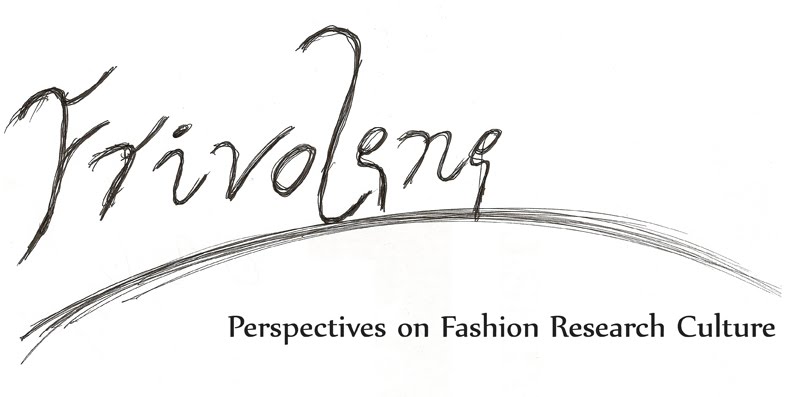
Photo by Guy Bourdin
As part of my research into the Fashion City, and looking at practices within the fashion business, The Guardian newspaper published an interesting, if dis-heartening, article last weekend. Entitled ''Fashion Victims'', the focus of the article was on the tough conditions faced by those working in the ''glamorous'' industry of fashion. Rather than looking at the appalling conditions of factory workers in developing countries, which perhaps no-one can now deny happens, instead this article focused on a situation much closer to home: that of the fashion intern.
For many aspiring fashion designers looking to get a foot-in-the-door, the fashion internship, or work placement, has become a rite of passage. Working un-paid, or on the basis of receiving ''expenses'' for travel, has become a standard practice here in the UK. As this article high-lights, for many a start-up fashion brand this kind of labour is not just a temporary option, it is often essential to the running of a fashion brands operations, particularly in the build-up to events such as London Fashion Week. In particular, having the experience of working for a smaller firm has the advantage that as internee you are often given greater levels of responsibility, working on aspects of a business that can make a real difference. Yet this article investigated much more alarming practices, not at a start-up firm, but that of a well-established and internationally-known name, that of Alexander McQueen. While it might seem rather disingenuous of The Guardian to focus on the operations of the recently deceased McQueen, it certainly focuses attention on a ''hidden'' aspect of the fashion industry that is not widely known to the general public. Currently, in the UK interns, i.e. those working in unpaid positions, can only be ''hired'' for one month, with flexible working hours and conditions, i.e. days and time worked is to be negotiated, so for example a student could work 2/3 days to fit in with study or paid work commitments. After this time period, the firm who has contracted them must draw up a contract and pay them the minimum rate of pay as set by the UK government. Yet according to the example in the article, some interns have been expected to work beyond this time limit, with no pay, and often working 12 hour days, 6 or 7 days a week. While astonishing that this can happen in 21st Century London, it is, unfortunately, not entirely surprising.
Photo by Guy Bourdin
A few years ago, as this article also highlights, I too was interning, with experience of firms in both the fashion and cosmetic sectors, where it was not unusual for interns to outnumber actual, full-time employees of the company. In this situation, you do begin to wonder if this is really ''normal'', or indeed sustainable practice, not to mention begin thinking if such ''experience'' gaining is really so worth while when you are not getting proper recognition for your input i.e. payment. For instance, during one placement it happened that one manager and my fellow intern had a day off, and the other manager was sick, so I was expected to effectively be ''in charge'' of running the PR office for that day, and while, luckily, nothing came up that I wasn't able to manage, it was the day when almost the entire cohort of UK top-glossy magazines called up to request information or product samples. The subsequent monetary value of this press coverage from this day ran into thousands of £s, all good ''experience'' (there perhaps isn't an editor I now couldn't handle), but it does make you think twice about how it is possible that it can be ''okay'' for you to do a job for free that other people get paid (a significant) amount to do. There is perhaps no easy answer to this solution, particularly for those who come from less ''privileged'' backgrounds who cannot afford to work for free, in-definitely, in the hope of getting hired for a ''real'' job. Yet seeing as this practice is very much considered a ''rite of passage'', with many I have spoken to in the industry stating they have all had to work unpaid at some point, it seems there is little incentive for changes to be made. Yet it seems that rather than interns completing an internship or series of internships with the incentive of a gaining a paid job, it seems as if many firms are happy to rely on an ever changing pool of fresh and naive aspirants wishing to gain ''experience''. Yet the very nature and quality of this experience needs to be addressed. It seems that once again the fashion industry is having the mirror held up to reveal its warts and blemishes. Rather than turning away from its responsibilities, perhaps it is time for the industry, including colleges, fashion designers and brands, and relevant bodies like Skillset and the British Fashion Council, to band together and look again at how to improve and regulate the fashion intern schemes, perhaps through a bench-marking system.

No comments:
Post a Comment